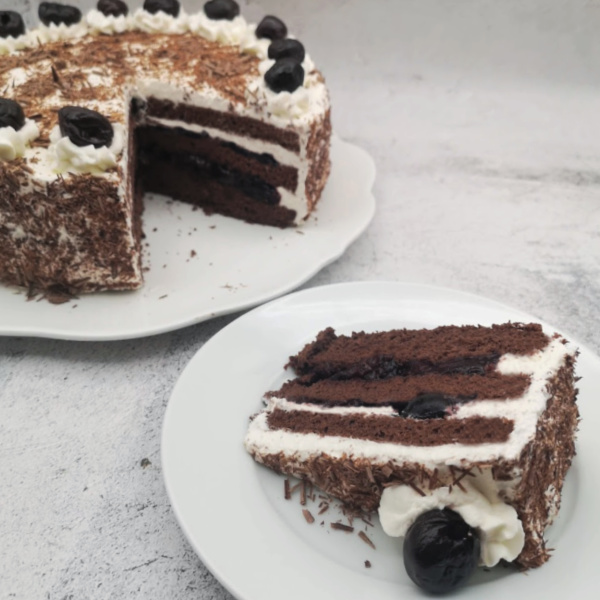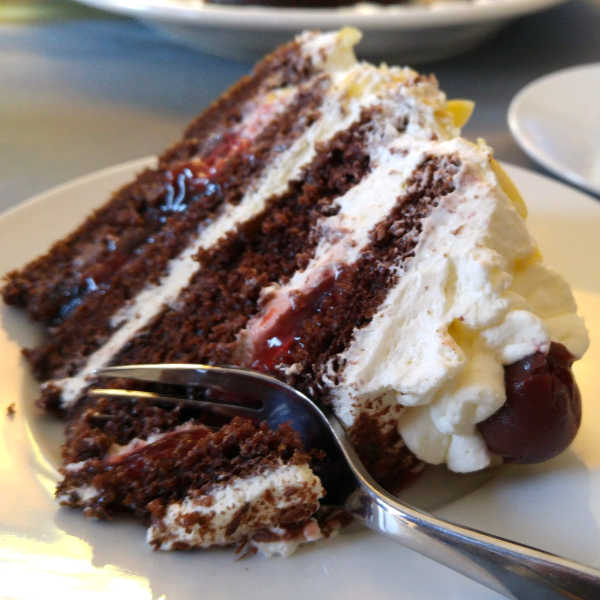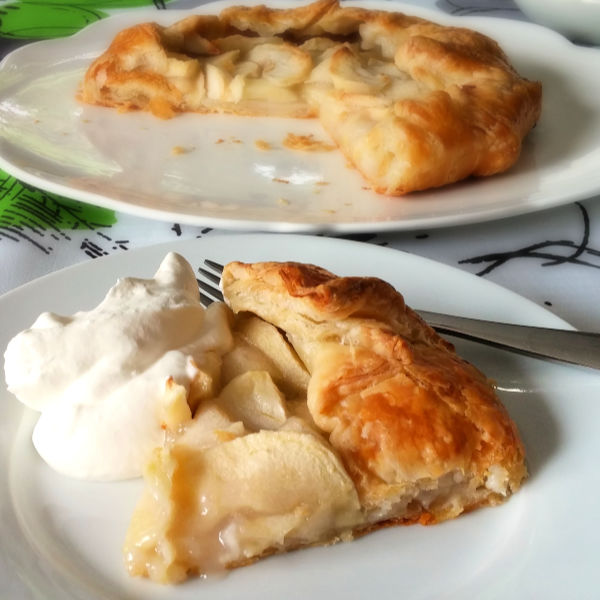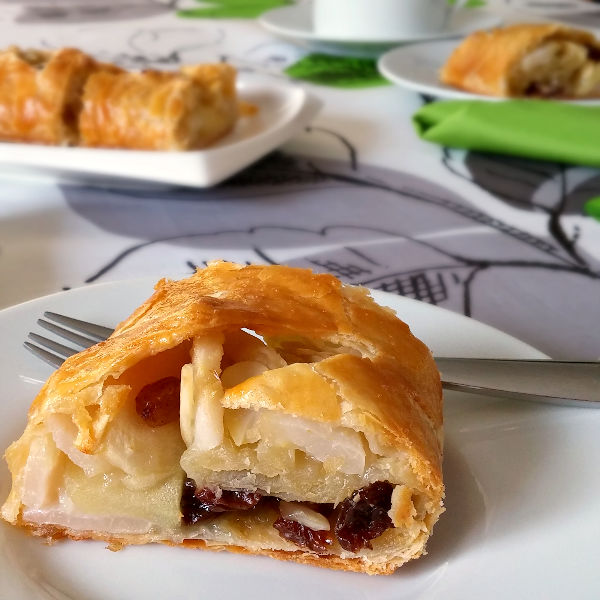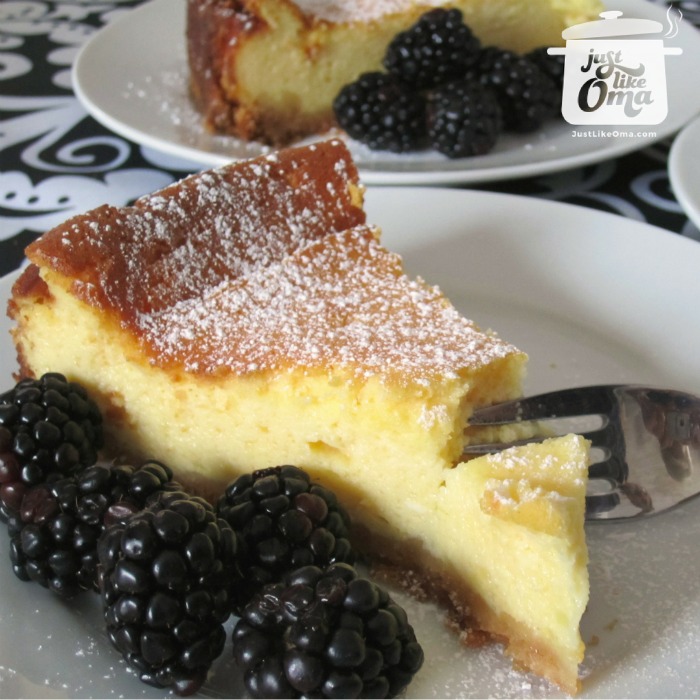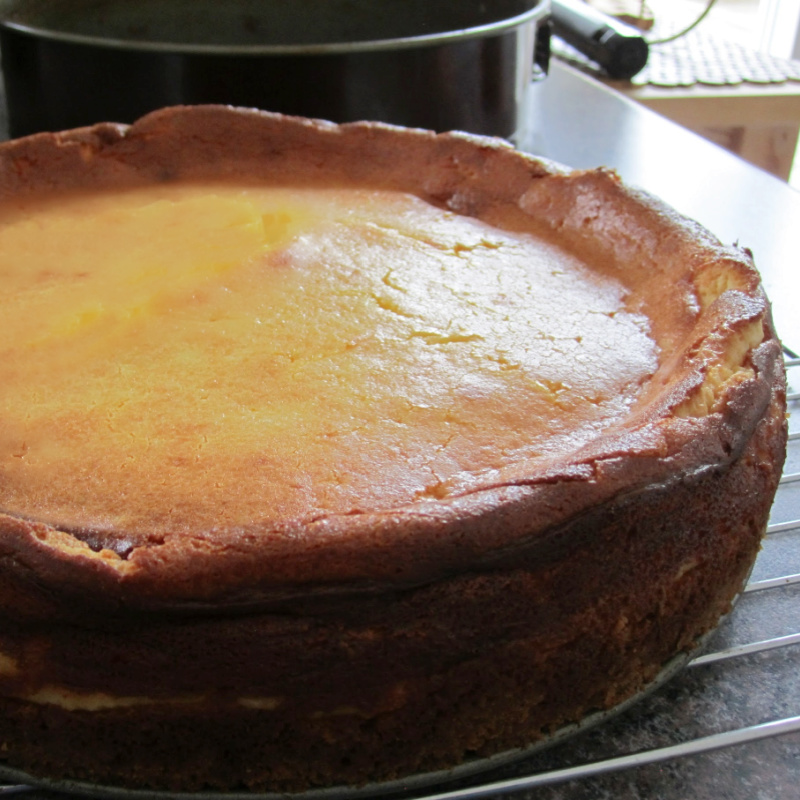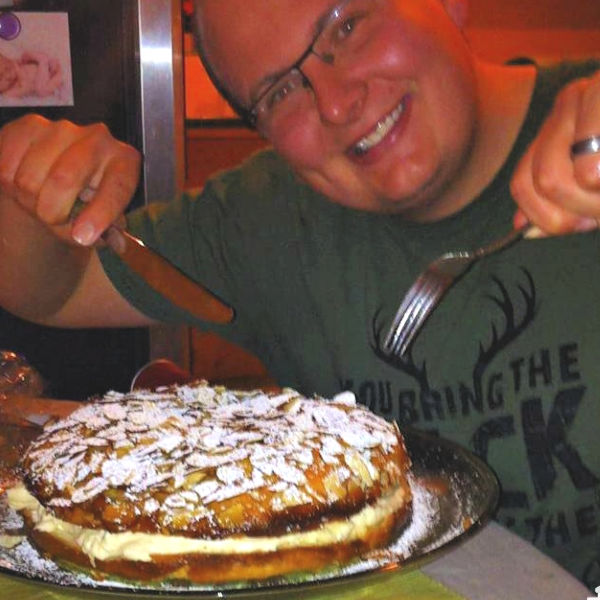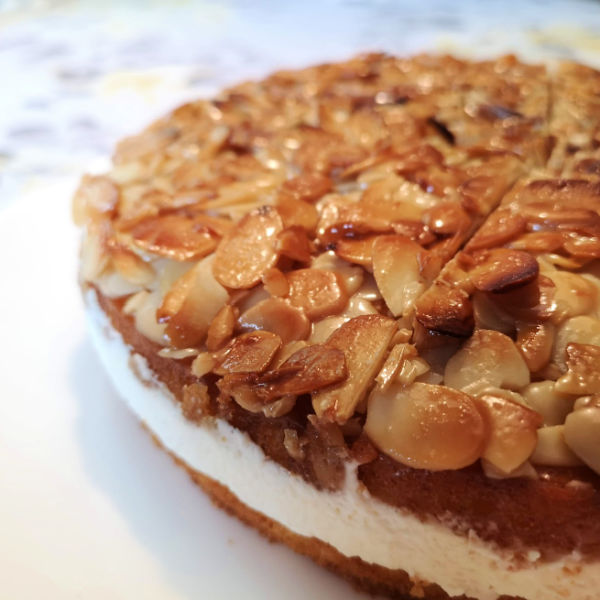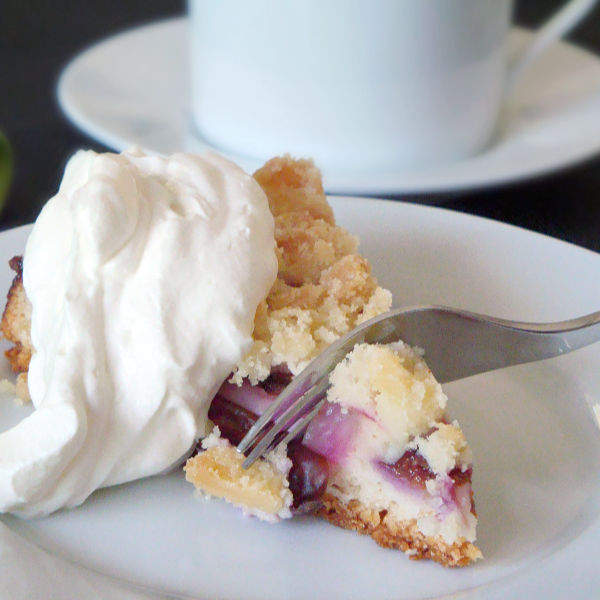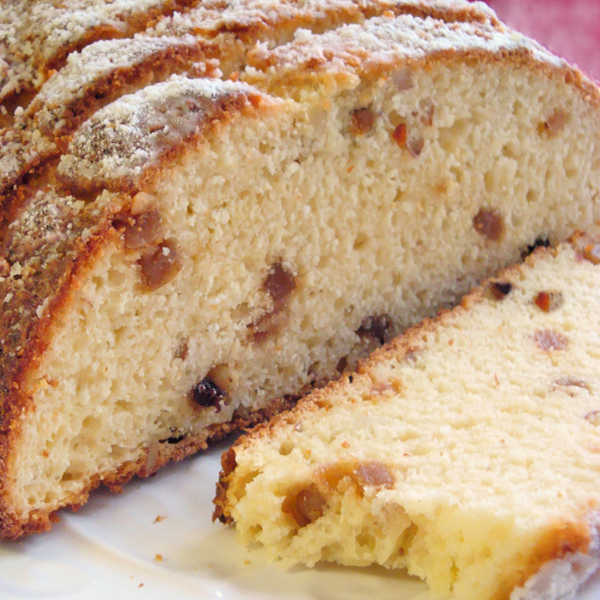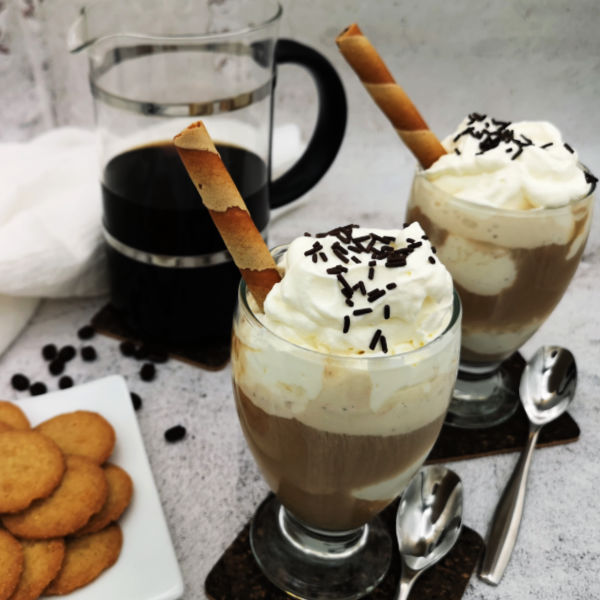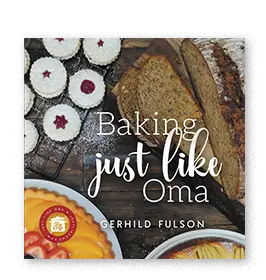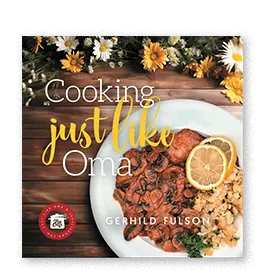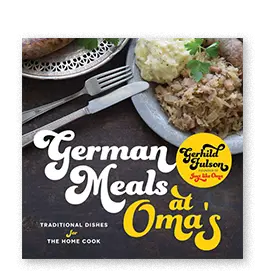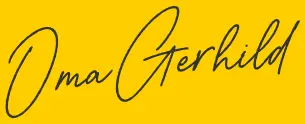Spice up your inbox with FREE German recipes and a free recipe ebook!
- Home
- Culture and Customs of Germany
- Kaffee und Kuchen
Give me a break!
With coffee.
... and caaake.

by: Mike Fulson / Artist, Tech Guy, German son!
THIS POST MAY CONTAIN AFFILIATE LINKS, WHICH MEANS I’LL RECEIVE A COMMISSION IF YOU PURCHASE THROUGH MY LINKS, AT NO EXTRA COST TO YOU. PLEASE READ FULL DISCLOSURE FOR MORE INFORMATION.
First, a bit of transparency.
When I heard that Germans loved having their 3-hour coffee breaks (and had cake!), I was immediately intrigued and wondered why my world wasn't revolving around that?!
I was then quickly corrected that it's not a 3-hour break, but rather it usually happens around 3pm. And it's called "Kaffee und Kuchen".
Oh.
Only slightly deflated, I pressed on and what I found out was that this tradition is definitely about coffee, definitely about cake, but mostly about slowing down the rush of society to enjoy... society. :)
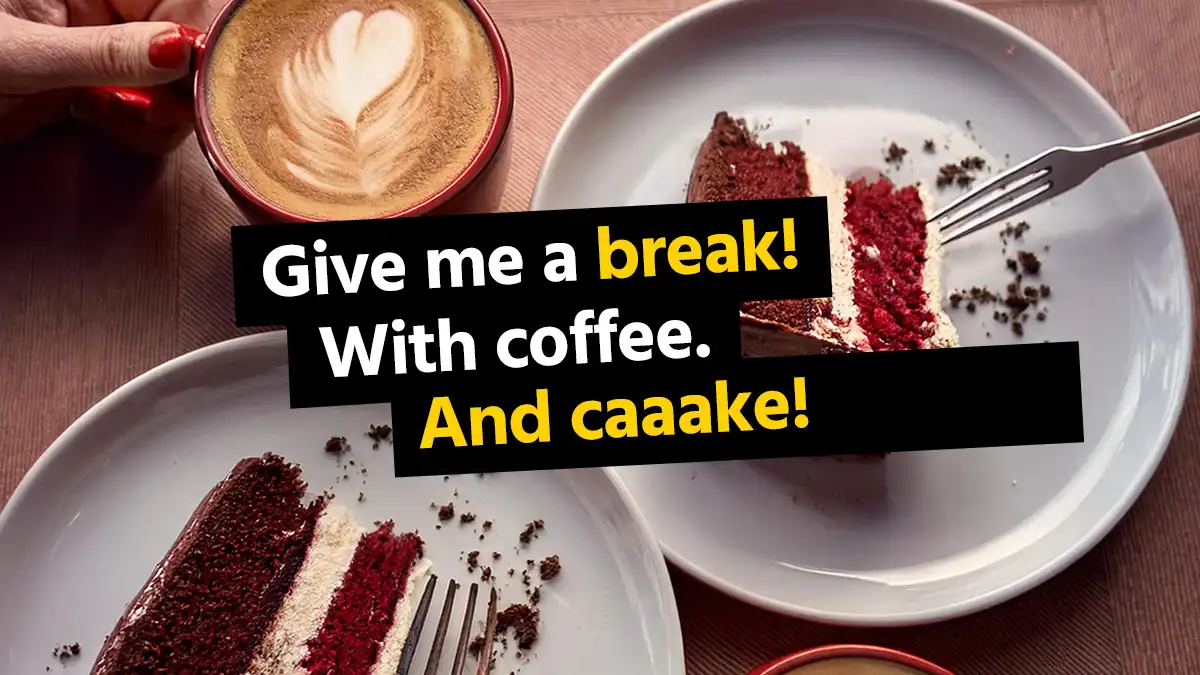 The tradition of Kaffee und Kuchen is awesome! And yummy...
The tradition of Kaffee und Kuchen is awesome! And yummy...Where it all began...
It began with coffee.
First appearing in the court of Brandenburg in 1675, coffee was introduced to the northern populace by an English merchant in 1679, who opened the very first coffee house in Germany's Hamburg.
For the next 30 years, more coffee houses were opened in even more cities as coffee's popularity grew.
Bach composes the Coffee Cantata in 1732.
"Father, don’t be so hard!
If three times a day I can’t
drink my little cup of coffee,
then I would become so upset
that I would be like a dried up piece of roast goat."
Then for the next 50 years or so it lived a torrid life in Germany, as it began finding its way into homes all over the country, replacing flour-soup and warm beer at breakfast.
The rich hoarded it. Then coffee was blamed for sterility and "weak soldiers". It was used for extortion.
Then it was relegated only to royalty to roast in order to create a "royal monopoly" and discharged soldiers acted as "coffee-smellers" who literally sniffed out any illegal brewing, punishable with fines or 2 years in jail!
Finally it was ultimately placed on prohibition.
But... coffee would outlast all of this and eventually evolved into the beloved beverage now enjoyed by Germans from all walks of life. :)
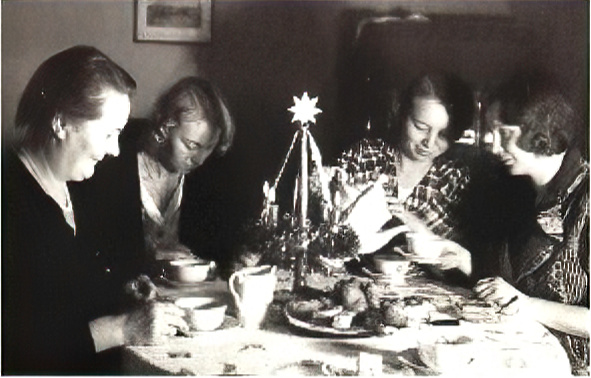 Oma's Oma, Mutti, and Aunts -- Christmas Coffee circa 1930
Oma's Oma, Mutti, and Aunts -- Christmas Coffee circa 1930Kaffeeklatsch
Alongside the growing popularity of coffee was the custom of pairing it with sweet treats.
This coffee and cake (kaffee und kuchen) tradition became the social event called, "Kaffeeklatsch", which essentially means catching up over coffee and cake.
Typically happening between 2 and 5 pm, with a sweet spot around 3 - 4 pm, this Kaffee und Kuchen is most popular on weekends, particularly Sundays.
But it's not uncommon to see this tradition carried out during the work week, with colleagues bringing treats to share in the afternoon.
Kaffee und Kuchen can take place pretty much anywhere.
Many Germans will invite guests to their homes, proudly serving their own hand-baked goods. It often calls for using one's best china, pastry forks, and a nice tablecloth, adding to the genuine and special nature of the gathering.
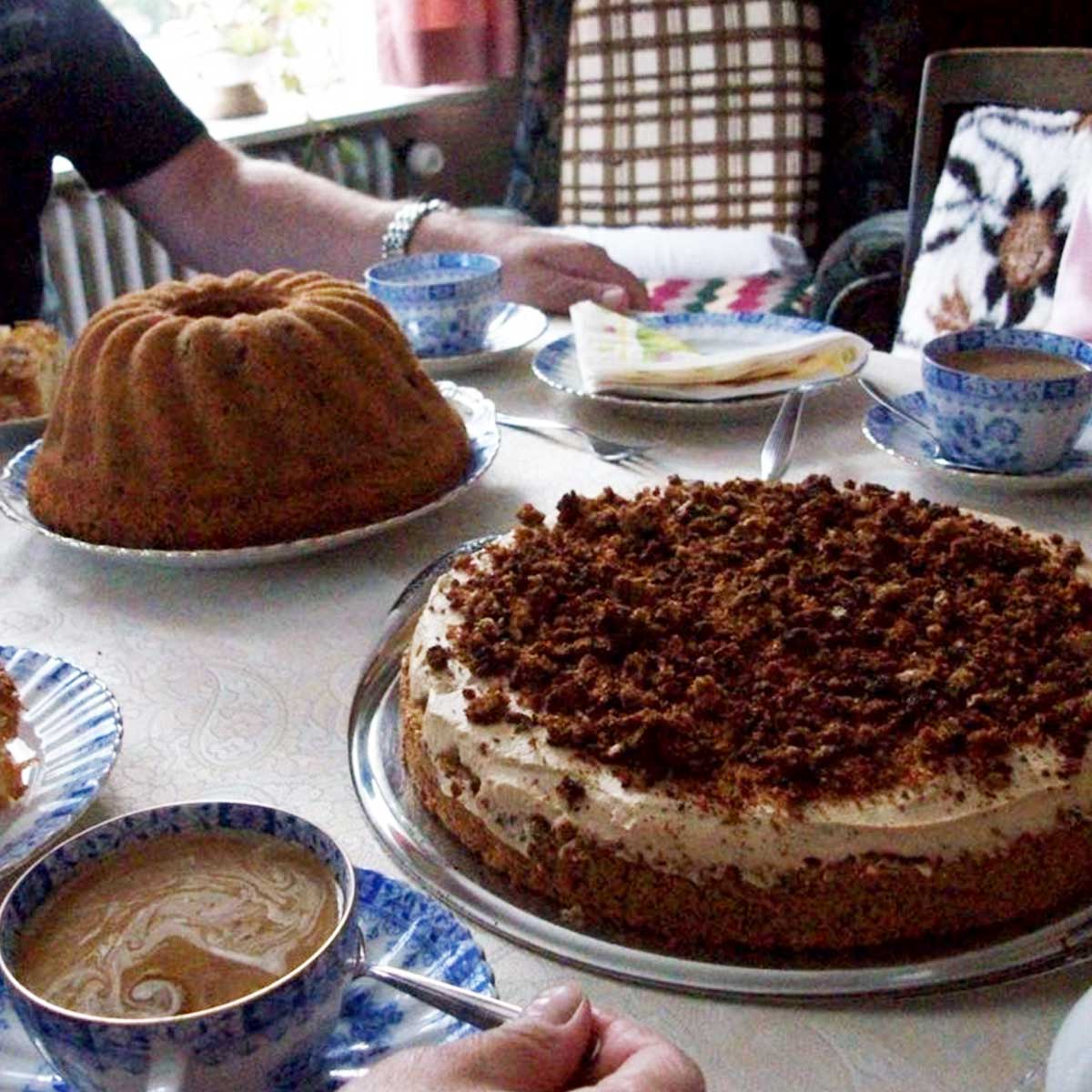 Oma enjoying a Kaffee und Kuchen invite!
Oma enjoying a Kaffee und Kuchen invite!
If you're in Germany and prefer to leave the baking to professionals, countless cafés and more traditional Konditorei (pastry shops) can be found throughout the country.
These shops often have an adjoining café, making them the perfect spot for indulging in this afternoon delight. :)
Whether at home or in a café, the emphasis is on creating a relaxed atmosphere that welcomes conversation and enjoyment.
Give them cake!
Oh yesss, the cake.
Because it's literally part of the name, "Kaffee und Kuchen", we most absolutely need to discuss those delectable cakes and pastries.
In Germany, bakeries and pastry shops offer an impressive array of treats for their customers, from simple sheet cakes to elaborate tortes.
Some of the more popular choices include:
Schwarzwälder Kirschtorte (Black Forest Cake):
Layers of chocolate sponge, whipped cream, and cherries, flavored with cherry liqueur and topped with chocolate shavings.
Apfelstrudel (Apple Strudel):
A flaky pastry filled with spiced apples.
Käsekuchen (cheesecake):
German-style cheesecake made with quark.
Bienenstich (Bee Sting Cake):
A yeast cake filled with custard cream and topped with caramelized almonds and honey.
Seasonal offerings are also common, such as Pflaumenkuchen (plum cake) in summer and Stollen (a fruit bread with dried fruits, nuts, and spices) during Christmastime.
German cakes are typically heavier and less sweet than their American counterparts, often including fresh fruits, nuts, and cream.
They're also usually served in larger portions, often accompanied by a generous dollop of Schlagsahne (whipped cream).
But wait, there's more about coffee!
While the "Kuchen" (cake) part of Kaffee und Kuchen often steals the spotlight, as... er... seen above, the coffee itself plays an equally important role.
While German's don't consume the most coffee in the world (they're currently in 16th place in that regard), they do take their coffee seriously.
Here's the need-to-know about some of the more popular German coffee drinks:
- Milchkaffee: similar to a café au lait, this drink consists of equal parts steamed milk and coffee.
- Eiskaffee: a refreshing summer treat, this "ice cream coffee" is made with cold coffee and vanilla ice cream.
- Pharisäer: a specialty from Northern Germany, this indulgent drink combines coffee, rum, and whipped cream.
- Coffee Alternatives: for those who prefer non-coffee options, hot chocolate and a wide variety of teas are also popular choices during Kaffee und Kuchen.
BTW, thank you, Melitta & Gottlob!
Did you know that the paper coffee filter that revolutionized home brewing, was invented by German housewife, Melitta Bentz, in 1908!
Also, Gottlob Widmann invented the electronic drip brewer in 1954. Where would coffee be without these nowadays?!
In the end, it's all about the socializing
Perhaps the most important element of Kaffee und Kuchen is its social nature.
It allows for a special, dedicated time with coworkers, friends, and family to come together, share stories, and enjoy each other's company. All are welcome... any age, any social status, making it a unifying cultural practice.
In today's too-fast-to-chew world, Kaffee und Kuchen offers a welcome respite -- a chance to slow down, savor the moment, and connect with others.
Whether you're a local, or a visitor to Germany, participating in this cherished tradition provides a genuine taste of German culture and hospitality.
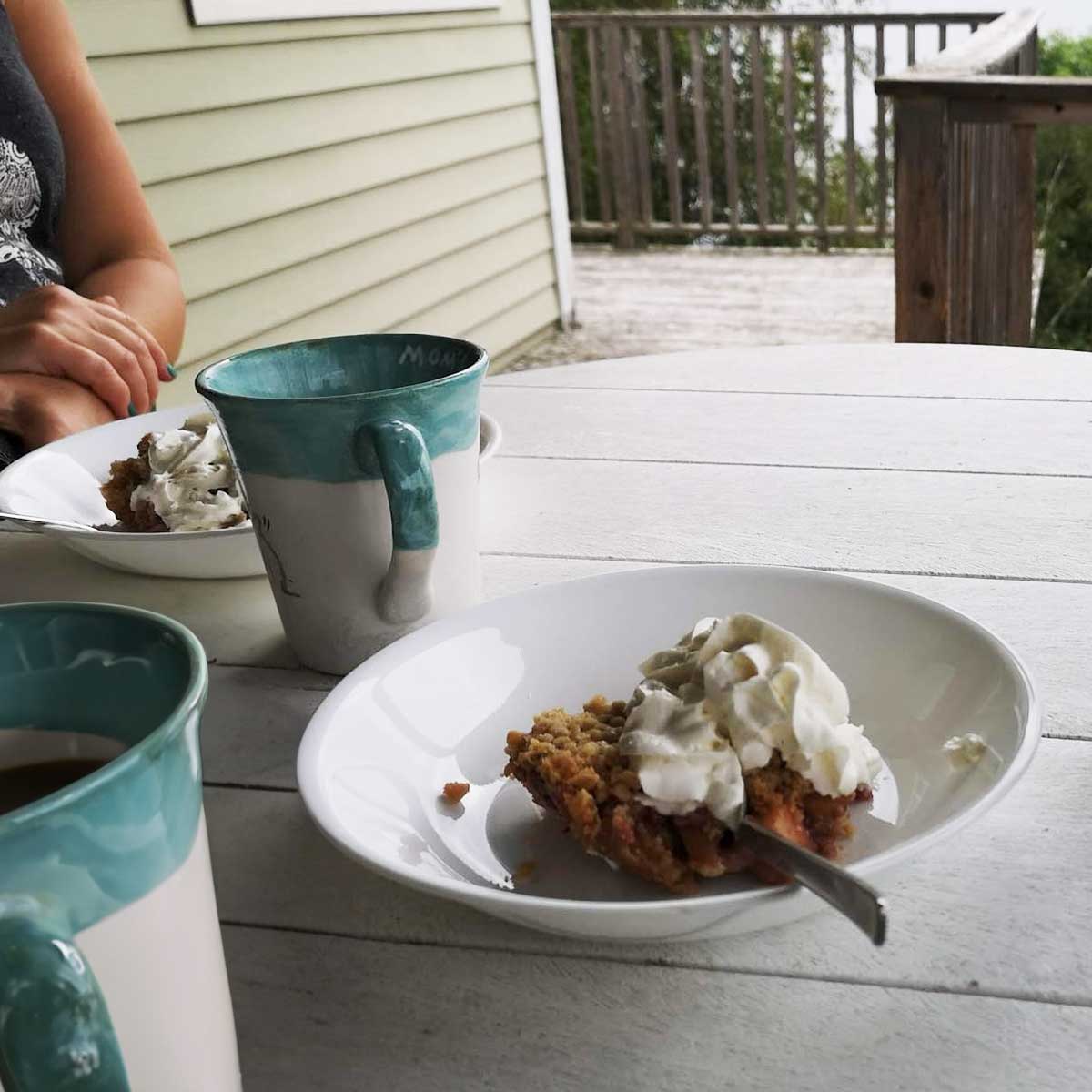 A quiet, relaxing Kaffeeklatsch
A quiet, relaxing KaffeeklatschSo, the next time you find yourself in Germany between 3 and 4 pm, look for a cozy café or Konditorei. Order a slice of cake, a piping-hot beverage, and immerse yourself in the delightful cultural experience that embodies the warmth and gemütlichkeit (coziness) of German life. :)
Cheers, :)

